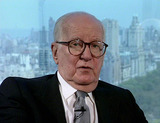Kurt Gerron (Kurt Gerson)
Kurt Gerron (Kurt Gerson)
Denn die einen sind im Dunkeln / Und die andern sind im Licht. / Und man siehet die im Lichte / Die im Dunkeln sieht man nicht.
[There are some who are in darkness / And the others are in light. / And you see the ones in brightness / Those in darkness drop from sight.]
The Ballad of Mack the Knife, The final verse in the film version of The Threepenny Opera, 1931
| Born | on 11 May 1897 in Berlin |
|---|---|
| Died | on 28 October 1944 in the Auschwitz-Birkenau concentration camp |
| Exile | Austria, France, Italy, Netherlands |
| Profession | Actor |
The multi-faceted actor and director Kurt Gerron was a much-lauded film, theatre and cabaret star of the Weimar Republic. In 1928 he sang the song Die Moritat von Mackie Messer (The Ballad of Mack the Knife) in the first performance of Bertolt Brecht’s Die Dreigroschenoper (The Threepenny Opera). He could also be seen starring alongside Marlene Dietrich and Emil Jannings in Der blaue Engel (The Blue Angel, 1930) and alongside Heinz Rühmann in Die Drei von der Tankstelle (The Three from the Filling Station, 1930). Gerron also put to use his talents as a director for the Ufa movie production company.
The Nazis ascent to power in 1933 essentially ended Gerron’s career within Germany overnight. As a Jew, he was not incorporated into the Reich’s newly-formed “Chamber of Culture” and, subsequently, he was forbidden from working within Germany’s cultural sector. As a result, the Berlin-born artist tried to establish himself as a director in France, Austria and Holland. He refused initial offers of employment passed on by friends in exile such Marlene Dietrich and Peter Lorre, who sought to find him contacts and work in the USA. Gerron finally relented and wrote to the US-based movie agent Paul Kohner in 1938, who in turn replied that opportunities for European actors were scarce at that time.
Gerron was arrested in 1943 after the Nazi occupation of the Netherlands, where the actor gave his final stage performance. He was deported first to Westerbork and then, in 1944, to Theresienstadt. Presumably in the hope of saving his own life, Gerron began working on the Nazi propaganda film Theresienstadt. Ein Dokumentarfilm aus den jüdischen Siedlungsgebiet (Theresienstadt. A Documentary from the Jewish Settlement Area) (1944/45). However, before the film could be completed, Gerron was deported and murdered, along with many others who had collaborated with him on the film.



